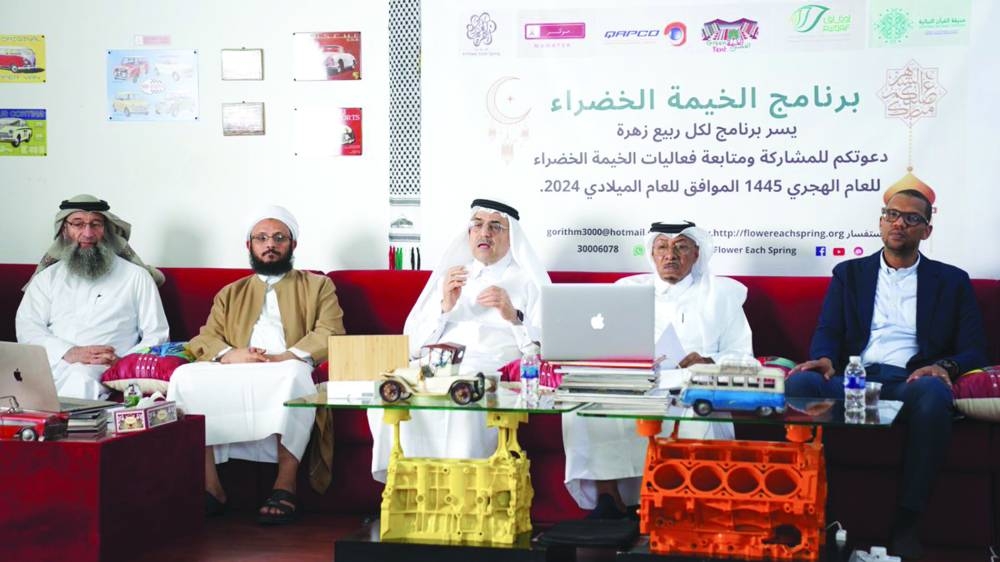The second symposium of the Green Tent programme discussed fasting Ramadan by patients with chronic diseases (PWCDs) from the Sharia perspectives, along with the medical tips that must be pursued by PWCDs during daylight.
The physicians, academics and religious scholars participating at the symposium determined specific cases in which people should fast or not by focusing on the Sharia licenses and evidence derived from the Holy Qur'an and the Prophetic Sunnah, the consequences of ignoring medical warnings for those who are fasting, the diseases brought by contemporary civilisation, and their impact on the fasting person, in addition to the psychological effects resulting from the patient's inability to fast.
The participants underscored the importance of PWCDs pursuing the instructions of modern medicine with respect to fasting and breaking the fast to protect their health, pointing out that in some cases fasting could pose a profound threat to patients' health, prompting them to solicit counseling from the supervisor physician before fasting as a key objective of the Islamic religion.
People with diabetes, blood pressure, older people, as well as liver, stomach ulcers and heart patients require special care, as those patients need to drink extra water and stay fully hydrated during the day, they highlighted, indicating that the Sharia perspectives on PWCDs fasting during Ramadan hinge upon the physicians' instructions, since Sharia primarily intends to save human lives.
The symposium concluded that physicians' instructions must be heeded in the case of PWCDs, and those who do not fast must make charitable compensation as Muslims for intentionally breaking any fasts which is called "Kaffarah". They emphasised that in case of any impending danger that could pose a direct threat to humans, Muslims must break their fast without making default or neglecting the prescribed Islamic pillar.

